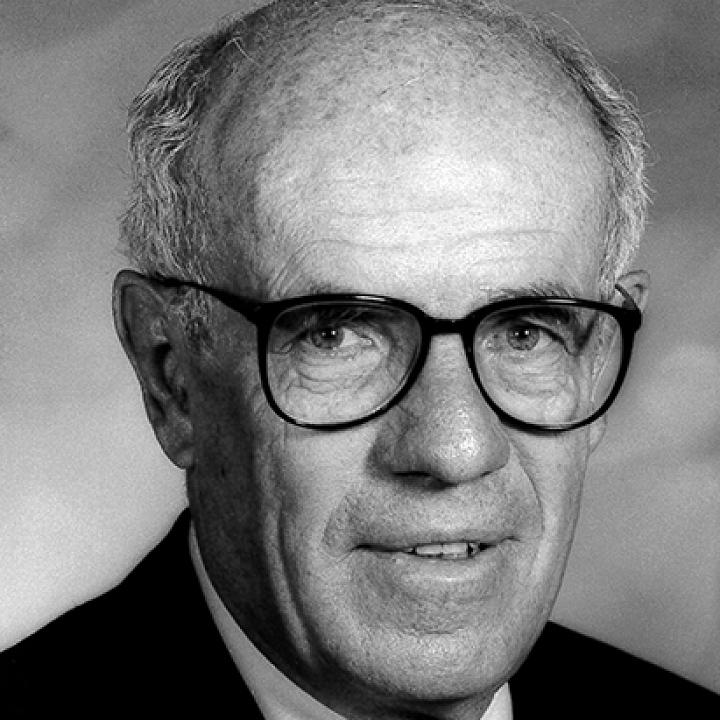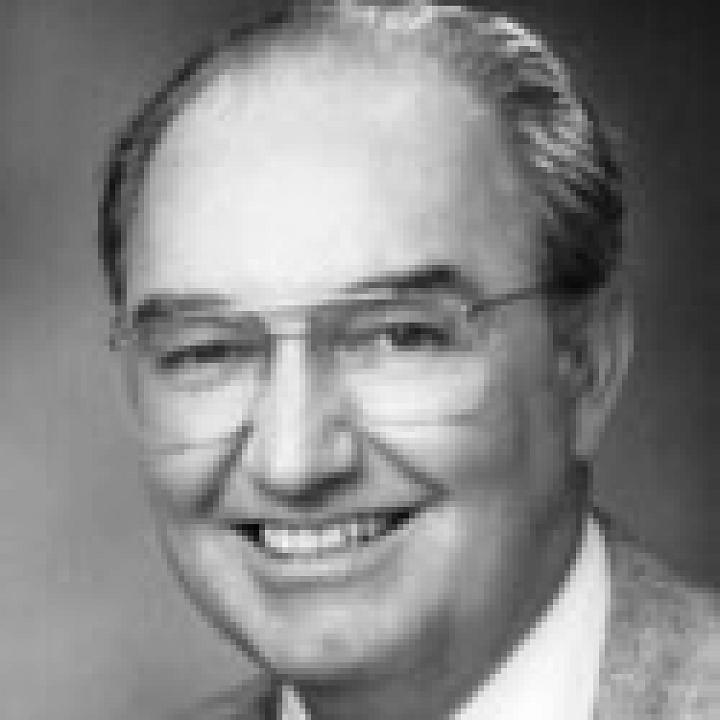Dr. Homer R. Warner is considered one of the fathers of medical informatics. He pioneered many aspects of computer applications in medicine. In the mid-1950’s, Dr. Warner began working on clinical decision support technology in the cardiology department at LDS Hospital. Dr. Warner and his colleagues developed the HELP (Health Evaluation through Logical Processing) system which is still in use today at Intermountain Healthcare.
Dr. Warner received his bachelor’s and medical degree from the University of Utah, and a doctorate degree in physiology from the University of Minnesota. He was elected as a Fellow of the American College of Medical Informatics in 1984. Dr. Warner founded and became the first chair in the Department of Biomedical Informatics in the School of Medicine which existed under various names since 1972. Dr. Warner’s legacy of excellence and innovation has persisted and the department remains a leader in informatics research, training, and implementation.
Dr. Warner died at age 90, on November 30, 2012 after a brief illness.
Dr. Gardner is one of the principal developers and evaluators of the medical expert system known as HELP (Health Evaluation through Logical Processing). He previously served as a co-director of medical computing at LDS, Cottonwood, and Alta View Hospitals in Salt Lake City, Utah.
Dr. Gardner received a Bachelor of Science degree in electrical engineering from the University of Utah in 1960. In 1968 he received a PhD in Biophysics and Bioengineering from the University of Utah. Dr. Gardner’s primary academic and research interests were in hospital informatics systems, computerized medical decision-making, computerization of critical care, automation of nursing processes, medical informatics education, and public health informatics.
He is the author or co-author of more than 350 articles in the fields of Medical Informatics and Bioengineering. Dr. Gardner was on the editorial board of Methods of Information in Medicine, and has been a journal editor and on editorial boards of Critical Care Medicine and other critical care journals, as well as the Journal of American Medical Informatics Association (JAMIA). He also served as editor-in-chief of the International Journal of clinical Monitoring and Computing.
Dr. Gardner is a Fellow of the American College of Medical Informatics. He is a past president and served on the board of directors of the American Medical Informatics Association.
As past AMIA President, and Morris F. Collen Award winner, the Journal of the American Medical Informatics Association (JAMIA) offers a special collection of papers in memory of Dr. Gardner here .
Dr. Gardner passed away after a short illness in 2020.
Dr. T. Allan Pryor was one of the giants of the biomedical informatics community. From the beginning of his career, his contributions to medical informatics have been groundbreaking and innovative. While at the University of Utah, Allan (Al) wrote the first computer program to automatically interpret an electrocardiogram. Shortly after he joined the faculty of the then-named Medical Biophysics and Computing department at the U of U (which would evolve into the current Department of Biomedical Informatics). Most of his research was done at the LDS Hospital in Salt Lake City, Utah. There he was the principal architect of the first medical record system that included knowledge-based decision support. In 2001 Al retired as a beloved Professor of Medical Informatics and as the Chief Medical Informatics Officer for Intermountain Health Care. Many students credit Al's mentorship as the foundation for their careers in biomedical informatics.
Dr. T. Allan Pryor passed away in 2009 leaving a legacy of dedicated service, teaching and research to the biomedical informatics community. Students and colleagues remember him for his invaluable support and mentorship.



